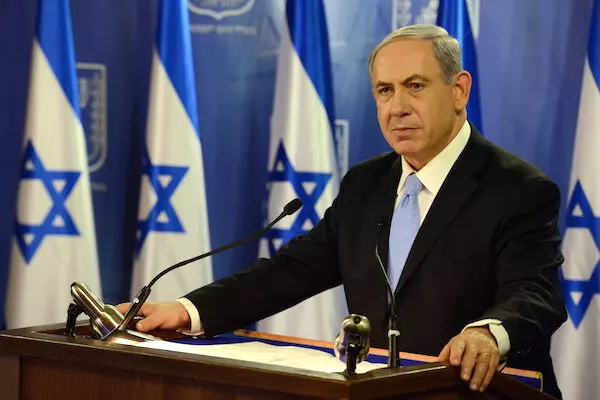
Politics plague Israeli virus response ahead of holidays
text_fieldsNow, with the coronavirus pandemic raging and the Jewish High Holidays approaching, Netanyahu finds himself caught between his ultra-Orthodox partners and the need to drive down surging infection rates. This balancing act could plunge the country into a new lockdown ahead of the holidays, which begin next week.
Netanyahu has faced a national furore over his handling of the coronavirus, but that anger is boiling over among the ultra-Orthodox, or Haredim, who have used their political muscle to fend off what they see as discriminatory restrictions.
"The entire Haredi public won't forget the injustice carried out against it," a group of mayors from ultra-Orthodox cities and towns wrote in a letter to Netanyahu this week.
"The decisions you made, time after time, were made with no regard for logic or health benefits, and were clearly aimed at the Haredi public. We consider you the only culprit for these punitive measures." Israel this week imposed new restrictions on some 40 cities and towns with worrying outbreaks, which include nighttime curfews, strict limits on public gatherings and the shuttering of schools. The restrictions mostly affect ultra-Orthodox as well as Arab communities, which have also been hit hard in recent weeks.
The government had been expected to approve a stricter lockdown on many of the localities, as called for by the country's coronavirus czar, Ronni Gamzu. But after intense pressure by ultra-Orthodox politicians and the scathing letter by the Haredi mayors, Netanyahu suggested the compromise, which some experts believe will not help bring down infection numbers.
In a video aimed at the ultra-Orthodox population, he attempted to ease frustration over the latest, watered-down restrictions.
"You know how much I care about Torah study and prayer. These are things that are important to me just as they are important to you. And with that I say we need to take steps that prevent the spread of morbidity," he said.
Some ultra-Orthodox politicians have pushed for a broader lockdown on the entire country. Gamzu has opted instead for more pinpointed measures aimed at hard-hit towns and neighborhoods, earning him scorn from the ultra-Orthodox.
Netanyahu has said a lockdown remains an option. But imposing one on all Israelis after walking back the restrictions on the ultra-Orthodox could be viewed as political surrender.
"Netanyahu has a commendable record of folding magnificently but this time it concerned life and death," wrote Yossi Verter, a political commentator, in the Haaretz daily.
"Because of petty politics Israel may experience disproportionate collective punishment." No formal decision has been made yet about the holidays. Israelis typically hold large family gatherings and pack synagogues, especially during the important fast of Yom Kippur, settings that could send infection rates spiking.
Officials have floated the idea of a nationwide lockdown, as they did during the Passover holiday in April. This could have limited economic fallout because much commercial activity stops over the holidays. But that would anger many Israelis and health experts say a limited short-term lockdown may not be effective.
Also unresolved is the issue of an annual holiday pilgrimage to the tomb of a revered rabbi. Tens of thousands of faithful descend on the Ukrainian city of Uman around the Jewish New Year for prayer and festivities. Gamzu has tried to block travel and Ukraine closed its borders in the lead-up to the event.
But religious leaders say their communities are being unfairly targeted and Netanyahu has appointed a senior Cabinet minister to try to devise a compromise that would allow at least some people to make the pilgrimage.
Israel appeared to have contained its outbreak by swiftly closing its borders and imposing tough lockdown measures last spring. But after a hasty reopening and what's been criticized as government mismanagement, infection numbers have shot up to record levels. The country now has one of the world's worst outbreaks, adjusted for population.
Infection rates in ultra-Orthodox communities have been disproportionately high. The ultra-Orthodox tend to live in poor, crowded neighborhoods where sickness can quickly spread. Synagogues, the centerpiece of social life, bring men together to pray and socialize in small spaces.























